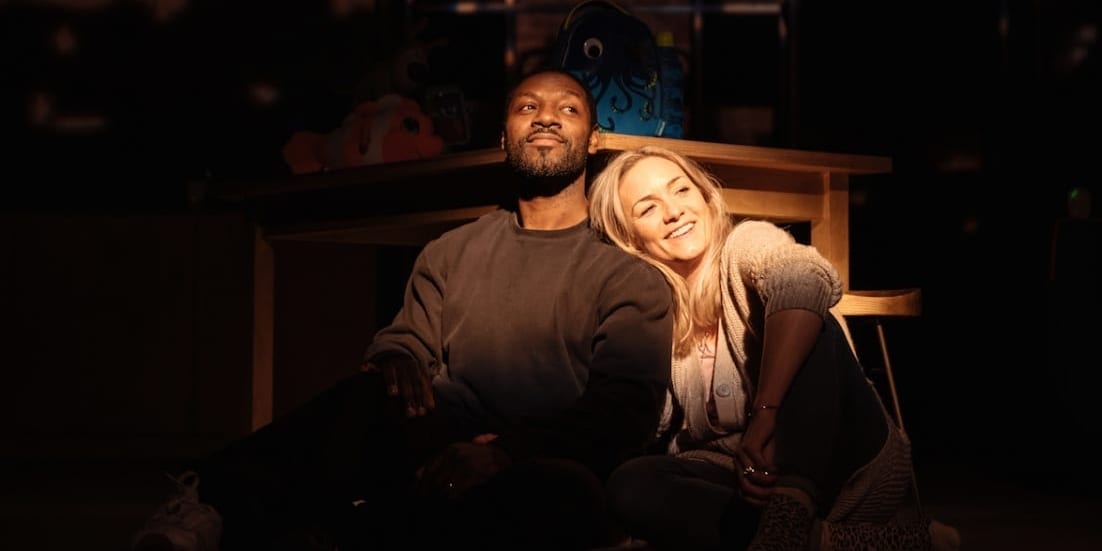This is a strange and fascinating play – part sitcom, part agitprop, part tragedy. It deals with white racism against our ethnic minority communities but it does not shy away from the rivalries and divisions that bedevil relations between different groups within the black and ethnic minority communities. That the play begins as comedy and ends as tragedy seems only too appropriate as I write this the day after a general election in the UK. Bhatti is a brave and challenging writer with a superb ear for the shifts and patterns of everyday dialogue. She is perhaps best known for her play about a Sikh community that was taken off in Birmingham after public protests. I hope that, in the end, it is for plays like this that she will be remembered.
Nicky is a working class white woman. She is married to her childhood boyfriend Gary who is from the British Afro-Caribbean community and works in a manual trade. They have a child who is about to move to secondary school. The play begins with an impromptu party at their council flat at which Gary’s boss Victoria turns up, gets very drunk, and displays racist attitudes (that have the very diverse audience roaring with the laughter of recognition). The next day Gary is interviewed by Victoria for promotion to a supervisory role and is rejected. This provokes a confrontation between Victoria and Gary which allows Gary to express his pent-up rage about the way he has been treated and ends up with him chucking in his job. Nicky cannot see how they can continue to pay their bills if Gary has no income and this leads to a downward spiral of anger and reaction that reveals fault-lines in their apparently happy marriage and leads to tragedy.
Claire-Louise Cordwell as Nicky and Richie Campbell as Gary are both superb. Their love for each other and its disintegration as the external pressures force them to examine fault lines they have always ignored or managed to overcome is totally convincing. The moment when she realises that he will abandon her is almost impossible to watch – a brilliant moment of dramatic writing and of acting skill. Just as powerful is Gary’s growing anger as he confronts Victoria and faces up to the racism he has always faced, but has shrugged off, in the past.
There are other fine performances – by Petra Letang as Gary’s feisty sister Karen and by Manjinder Virk as Anjum, a woman from a British Pakistani community. Anjum is a friend of Nicky’s but her ambition for her child’s educational future ultimately destroys her friendship with Nicky whose love for her child is expressed differently. If there is a problem with the play it is that these supporting roles are not as complex and fully written as those of Nicky and Gary – so that at moments they seem almost comic cartoonish. Victoria’s transition from loose tongued drunk to vicious manipulator of Nicky’s despair seems more like a function of the plot than an examination of a particular character. Karen is almost too funny, and the audience reaction to a couple of her lines almost stops the show
The Royal Court Theatre and director Michael Buffong give the play every chance to thrive and flourish. The action zips along and the set is mobile and effective – though the epilogue, which beautifully underscores high hopes thwarted by a racist society, deserves a better setting. Even the moments of uncertainty will I am confident disappear further into the run. This is a challenging play that deserves the widest audience.

